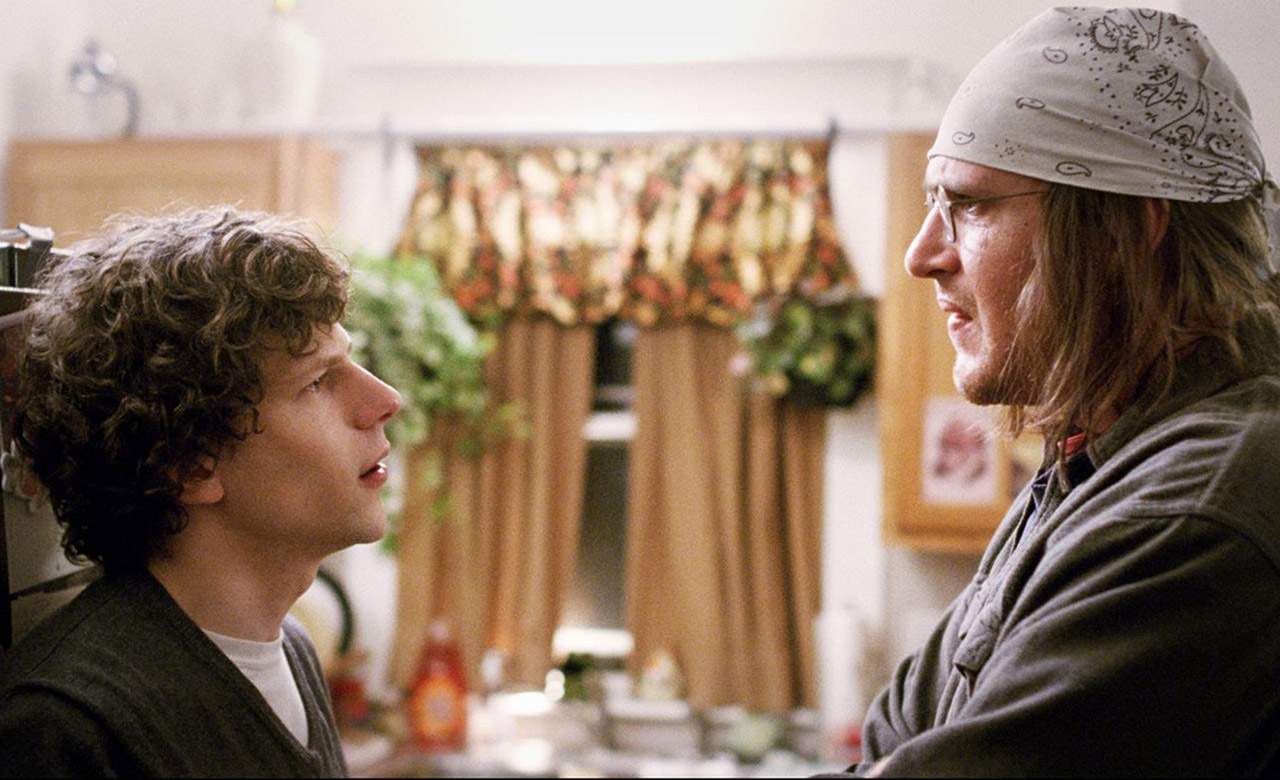The End of the Tour
Puts you in the mindset of the great David Foster Wallace.
Overview
When David Foster Wallace committed suicide in 2008, David Lipsky voiced his appreciation of the author on America's National Public Radio. "To read David Foster Wallace was to feel your eyelids pulled open," he began. "You didn't slip into his books looking for story or information, but for a particular experience — the sensation, for a certain number of pages, of being David Foster Wallace."
It's fitting that The End of the Tour highlights these words in its early stages, because the film tries to serve up the same — for those wanting to spend more time with the famous figure, and for those coming to him without any preexisting affection, too. Lipsky did both, back in 1996, when he was a reporter for Rolling Stone and Wallace's second novel, Infinite Jest, had just hit the shelves. Bitter about his own unsuccessful first book, Lipsky (Jesse Eisenberg) was sick of writing about boy bands and cynical about anyone who received acclaim. Wallace (Jason Segel) was the hottest thing in publishing, yet he was reluctant about his status, as well as the ample applause, rave reviews and awards chatter sent his way.
For five days, the pair talked and travelled as Wallace's rounds of the literary circuit wound down — and for 106 minutes, director James Ponsoldt and screenwriter Donald Margulies chart their chatter about life and love, their sing-alongs to Alanis Morissette, and their struggles with their shared profession. Lipsky's memoir, Although Of Course You End Up Becoming Yourself: A Road Trip with David Foster Wallace, informs a script light on narrative and heavy with mood, as the transcript of their discussions becomes a two-person-centric, conversation-driven film.
Sometimes Wallace and Lipsky's banter is friendly, and sometimes the two butt heads like adversaries. Whether they're agreeing or bickering — or subtly airing their envy and trying to best each other, as is common — Segel and Eisenberg bring their respective Davids to life with a sharp sense of their complications. Segel trades in sitcom goofiness for emotional depth and fragility not seen since his Freaks and Geeks days; Eisenberg lives up to his usual on-screen prickliness but never merely repeats his previous career beats. Indeed, The End of the Tour is as much a showcase for their efforts as it a chronicle of Wallace's complexities, insecurities and anxieties.
Except, of course, the film isn't really a biopic, but a snapshot of a moment in time that lays bare Wallace's contradictions through his interactions with Lipsky. In fact, by shooting the feature in a manner that mimics the pair looking at each other, and by touching upon universal issues such as loneliness and ambition, the movie speaks to the human condition as well as its particular point of focus. Ponsoldt did the same in his previous features Smashed and The Spectacular Now, which told personal stories in thoughtful, observational and relatable ways. It's an approach perfectly suited here, and one that mirrors Wallace's prose in plunging the audience into his mindset.





